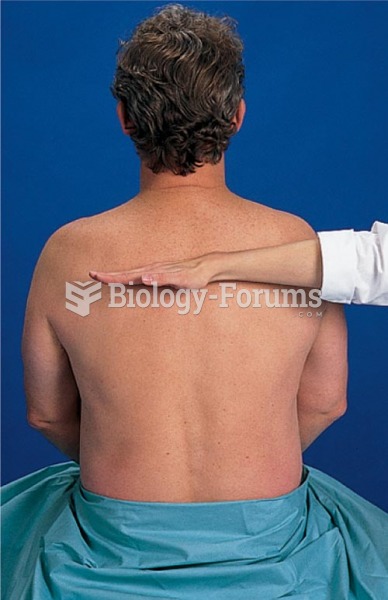This topic contains a solution. Click here to go to the answer
|
|
|
Did you know?
The oldest recorded age was 122. Madame Jeanne Calment was born in France in 1875 and died in 1997. She was a vegetarian and loved olive oil, port wine, and chocolate.
Did you know?
Persons who overdose with cardiac glycosides have a better chance of overall survival if they can survive the first 24 hours after the overdose.
Did you know?
More than 2,500 barbiturates have been synthesized. At the height of their popularity, about 50 were marketed for human use.
Did you know?
Drug-induced pharmacodynamic effects manifested in older adults include drug-induced renal toxicity, which can be a major factor when these adults are experiencing other kidney problems.
Did you know?
Most childhood vaccines are 90–99% effective in preventing disease. Side effects are rarely serious.
 Hold hand around thumb and little finger and apply broadening strokes across the metacarpals. Press ...
Hold hand around thumb and little finger and apply broadening strokes across the metacarpals. Press ...
 Mobilize the ankle using the heels of the hands. Place a palm on either side of the ankle just below ...
Mobilize the ankle using the heels of the hands. Place a palm on either side of the ankle just below ...





